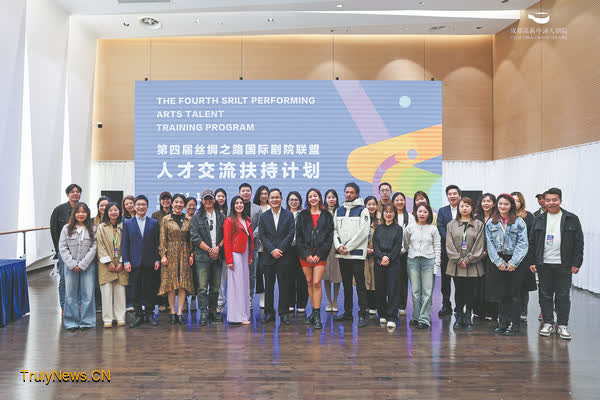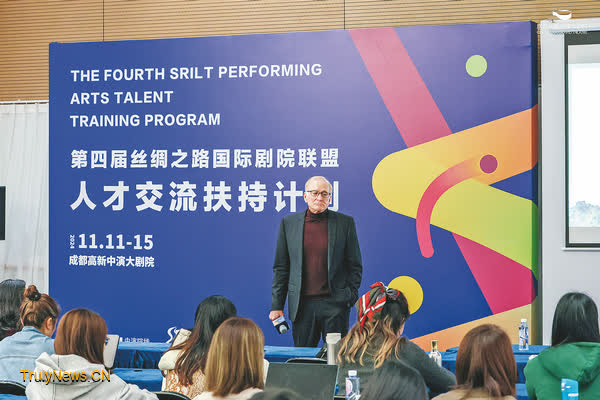
Over the past two decades, Joseph Graves, a 69-year-old veteran Broadway director, has dedicated himself to promoting and developing theater in China, while also taking Chinese theater to the global stage.
His latest endeavor was mentoring young talent in the theater industry during the Fourth SRILT Performing Arts Talent Training Program held from Nov 11 to 15 in Chengdu, Sichuan province. SRILT stands for Silk Road International League of Theatres.
In a lecture at the CDHT-CPAA Grand Theatre under the CPAA Theatres, Graves shared his experiences of directing and producing the Chinese versions of world-renowned musicals. He also answered questions from the trainees, which he thought were moving, thoughtful and intelligent. CDHT stands for Chengdu High-tech Industrial Development Zone and CPAA stands for China Performing Arts Agency.

Graves has been working and living in China since 2002, when he accepted an invitation from Cheng Zhaoxiang, then dean of the School of Foreign Languages at Peking University, to coach the university’s students in performing Shakespeare’s play, The Tempest.
A total of 4,000 students signed up for auditions, although many of them had never acted onstage and some had never even watched a play.
“Those kids were really talented, but they didn’t know it because they had never had such opportunity,” says Graves, describing the experience as life-changing for him.
To expose more Chinese university students to the magic of theater, rather than just those majoring in drama, Graves and Cheng founded the Institute of World Theater and Film two years later, trying to integrate theater into the curriculum of universities all over China.
Graves also initiated the Chinese Universities Shakespeare Festival, which he ran for 10 years, involving over 800 universities across China and thousands of students performing scenes from Shakespeare plays.
Through his efforts, many students developed their interest and talent in theater and became successful actors, playwrights, directors or teachers.
With his support, Yang Jiamin, a former student of his at Peking University, founded the Seven Ages in 2012. The Beijing-based company, which specializes in localizing classical Western musicals, later became one of China’s leading musical production companies.
During his years in China, Graves has directed and produced around 100 plays in both Chinese and English, including Shakespeare and classical Western plays, as well as musicals, dramas and operas from different countries and cultures. Fifteen of them were staged in China for the first time.
Graves believes that within the next 20 years, China will become the world’s largest theater market, as an increasing number of Chinese people are showing an interest in plays in recent years.
“A greater proportion of young people have received higher education and know what theater is, and more people can afford to watch a play,” he says. “Take Seven Ages as an example, people who started with our shows 12 years ago are still coming back, and now they bring their kids along.”
An interesting discovery Graves made while touring with his one-man show around the country a few years ago is that many retired people of his age are interested in learning about performing Shakespeare.
“After the show, I would hold workshops for these Chinese people, who never had the opportunity to perform. They did wonderful little scenes, and that kind of thing doesn’t happen in the US,” he says.
As a big fan of Chinese culture, Graves has directed and introduced 10 Chinese plays to other countries, including The Monkey King, Teahouse by Lao She (1899-1966), and The Wilderness by Cao Yu (1910-96).He has also conducted experiments to adapt several Shakespeare plays into various forms of Chinese opera.
One important thing that he is determined to do is to make a movie about the life of Zhu Shenghao (1912-44), who translated almost all of Shakespeare’s works into modern Chinese under the direst of circumstances, including the Japanese invasion of China and enduring tuberculosis.
Having participated in the SRILT training program for the third time, Graves says that in the next edition, he would like to create a workshop that teaches young people how to act in a short period of time to help them get a deeper understanding of theater.